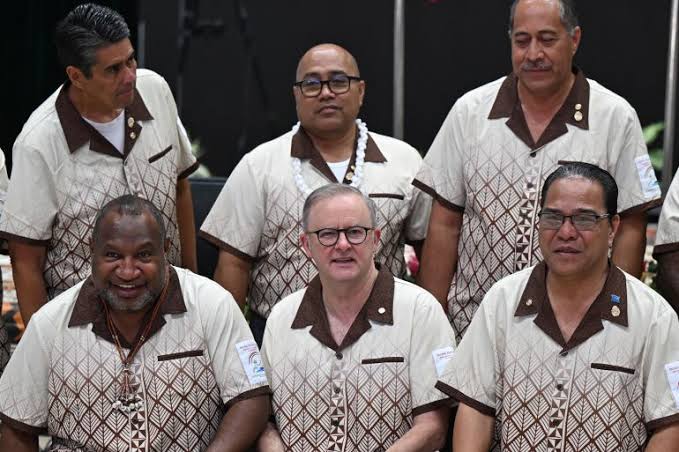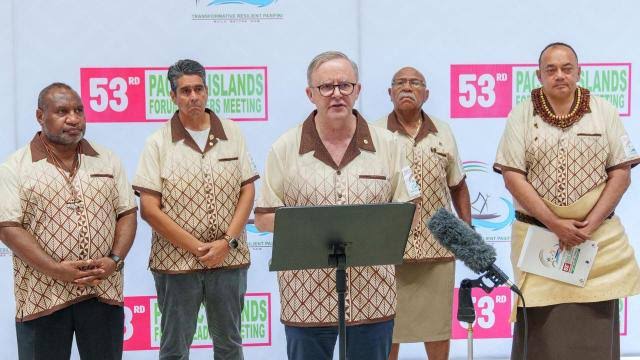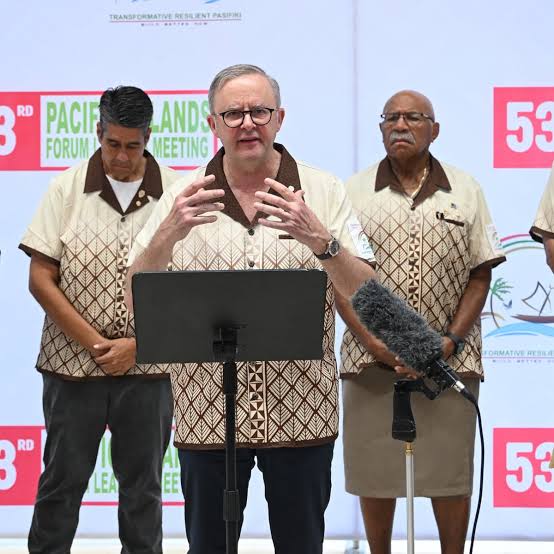Leaders of the Pacific Islands have backed a joint police plan funded by Australia that aims to improve safety and cooperation in the region. Four training centres will be set up across the Pacific as part of the initiative. This is seen as an important step towards addressing the growing security problems in the area. A central hub in Brisbane, Australia, is part of the plan. This hub will coordinate activities and serve as a base for advanced training and sharing of resources.
The joint police plan was announced at a recent meeting of Pacific Island leaders, where they talked a lot about how important it is for the region to work together on security issues. The leaders all agreed that the plan was a good idea. They said that police need to be better equipped to deal with new threats like transnational crime, human trafficking, and security problems at sea. The plan is also seen as a proactive way to keep the region stable, which is under more and more pressure from geopolitical factors outside the area.

Pacific Islands unite for regional security: Leaders back Australia’s joint policing initiative with Brisbane at the helm.
Australia’s support for the safety and well-being of the Pacific Islands is shown by its contribution to funding and facilitating the joint police plan. The project is part of Australia’s larger Pacific Step-up plan, which aims to improve relations with its Pacific neighbours by putting more money into security, governance, and infrastructure. One important part of this strategy is the creation of the four training centres, with Brisbane acting as the main hub.
The training centres will be placed in key places across the Pacific so that local police forces can easily get to them and get specialised training. The main goal of these centres is to increase the number of people who can help with things like neighbourhood policing, fighting terrorism, cybercrime, and responding to disasters. The Brisbane hub will be the main place where everything is coordinated. It will offer advanced training programs and make it easier for the centres to share information and resources.
Pacific Island leaders are happy about the joint policing plan because it is a much-needed step that fits with the region’s security goals. The plan aims to make the Pacific’s security system stronger and more self-sufficient by giving local police forces better skills and abilities. Additionally, this is anticipated to help maintain peace and boost growth in the area.

Strengthening ties and security: Pacific leaders support Australia’s ambitious policing plan across the islands.
But there are some problems with the plan. It will take careful planning and long-term dedication from everyone involved to make sure that the training programs and the integration of the different centres in different countries go smoothly. Concerns have also been raised that the initiative could be seen as an increase in Australia’s power in the area, which could make things more difficult with other big powers that have interests in the Pacific.
Even with these problems, the joint policing plan is a big step towards better working together on security in the area. The backing from Pacific Island leaders shows that everyone agrees that the region’s security problems need to be dealt with in a coordinated way. As the plan is put into action, the main focus will be on making strong relationships and making sure that the training centres meet the needs of the local police forces.

Brisbane to lead the charge: Pacific Islands rally behind Australia’s regional policing strategy.
Finally, the joint policing plan funded by Australia is a big step forward in efforts to keep the area safe. It has a central hub in Brisbane and a network of training centres all over the Pacific. The plan aims to make the Pacific Islands a better and more stable place by improving the police forces of those countries. This will help both the people who live there and the rest of the world. As the project moves forward, it will be a key test of how well countries in the area work together and how much Australia does to help keep its Pacific neighbours safe.